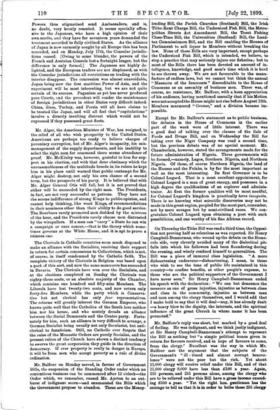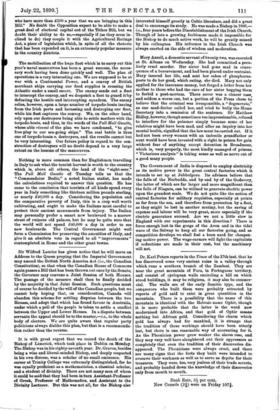Mr. Balfour's reply was short, but marked by a good
deal of feeling. He was indignant, and we think justly indignant, at Sir Henry Campbell-Bannerman's attempt to represent the Bill as nothing but "a simple political bonus given in return for favours received, and in hope of favours to come, from the clergy." Excellent was the way in which Mr. Balfour met the argument that the subjects of the Government's "ill - timed and almost corrupt benevo- lence" were not the poor but the rich. Yet about 11,000 clergy will receive relief under this Bill, and of that 11,000 clergy 8,000 have less than £160 a year. Again, 255 persons, and 255 persons alone, among the clergy who are to be relieved under this Bill have a gross income exceed- ing 2500 a year. "Yet the right hon. gentleman has the courage to tell us that it is in order to bribe these 255 clergy who have more than 2500 a year that we are bringing in this Bill." No doubt the Opposition expect to be able to make a great deal of electoral capital out of the Tithes Bill, but we doubt their ability to do so,—especially if (as they seem in- clined to do) they couple it with the Agricultural Ratings Act, a piece of legislation which, in spite of all the rhetoric that has been expended on it, is an extremely popular measure in the country districts.



































 Previous page
Previous page